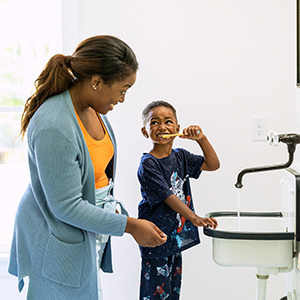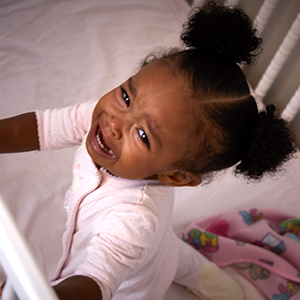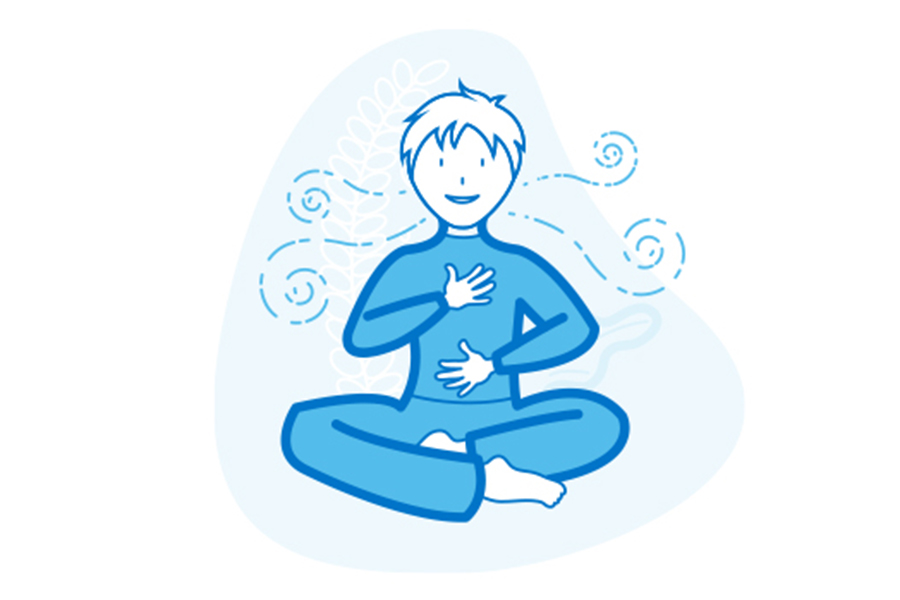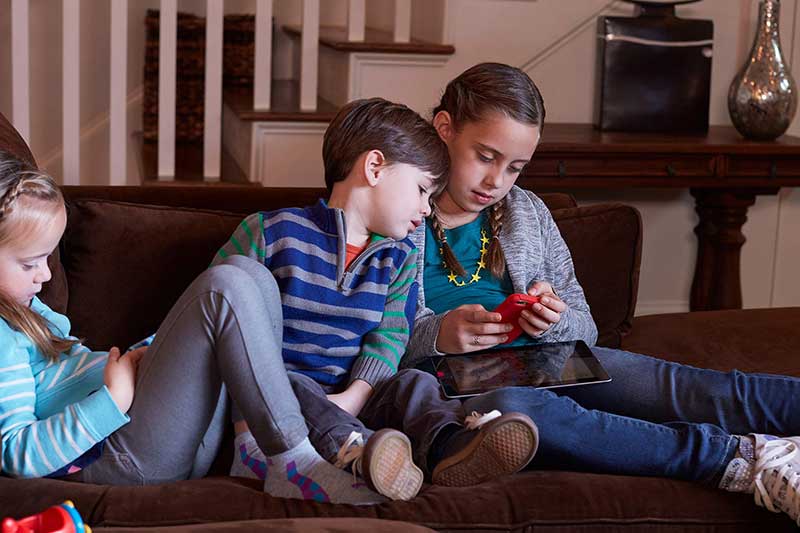Healthy Sleep Habits for Kids

Sleep affects every aspect of a child’s development (e.g., physical growth, mood, behavior, etc.), so creating healthy sleep habits is key to building overall health and wellness. Lack of restful sleep impacts kids’ ability to focus, manage their emotions and learn.
On the flip side, when children have good sleep hygiene, they tend to be better behaved, be more successful in school and have a stronger immune system, meaning they are less likely to get sick. Read on for tips to help your family practice good sleeping habits.
In this article:

How much sleep do kids need?
According to the Centers for Disease Control and Prevention, sleep needs for kids vary by age. Here are the daily guidelines for healthy sleep by age:
- Newborn (birth to 3 months): 14 to 17 hours
- Infant (4 to 11 months): 12 to 16 hours
- Toddler (1 to 2 years): 11 to 14 hours
- Preschool/Kindergarten (3 to 5 years): 10 to 13 hours
- School age (6 to 13 years): 9 to 12 hours
- Teenagers (14 and older): 8 to 10 hours
Sleep Tip #1: Put screens away before bed
One of the biggest barriers to good sleeping habits is using screens before bed. When we look at screens, we’re constantly stimulating our brains. And when our brain is constantly “on,” it’s harder for us to fall asleep. Plus, studies suggest that the light from screens can delay the release of melatonin, our body’s sleep hormone.
To help develop healthier sleep habits for kids, try:
- Turning off screens an hour before bedtime
- Removing screens from the bedroom
- Creating a wind-down routine before bed that doesn’t include screens
Sleep Tip #2: Try not to overschedule kids
Many school-age kids are scheduled to the max. They’re going to school, participating in daily activities or socializing with friends, and completing homework. Throw in dinner and a shower, and bedtime inevitably gets pushed back. It may be worth reconsidering how important some activities are to your family. More free time on the family calendar can make it easier for everyone to get the rest they need.
The same can be said for babies and toddlers, who don’t get the same quality of sleep when they’re on the go as they do when they are at home. Try not to feel guilty about saying no to an activity to make sure you’re home for naps and bedtime.
Sleep Tip #3: Create a bedtime routine
A regular bedtime routine is not only comforting to a child, but it also signals the brain to power down. Plus, it’s a chance for caregivers and kids to connect and close out the day by talking, reading or doing a calm activity together.
A child’s bedtime routine might involve bathing, brushing teeth, reading (actual books, not e-readers), listening to stories or soothing music, coloring, journaling or doing some deep breathing exercises.
With your child, figure out the best bedtime routine and try to be consistent. It’s normal and OK to get off track, but do your best to get back to the routine when you can. Or, if you feel like the routine isn’t working for your family, change it up to find what works.
Sleep Tip #4: Be firm with kids on limits
OK, you know sleep hygiene is important for kids. So, what do you do when your toddler is resisting going to bed on time or your teenager says you’re ruining their life because they can’t take their phone to bed?
Whenever setting boundaries is challenging, remember this: kids actually crave limits. By maintaining clear limits, you’re letting them know what to expect, which helps them feel safe and secure. If the expectations keep changing, they may feel uncertain and be more likely to test you. So, try to stand firm.
Tips for setting limits to promote good sleeping habits:
- For toddlers: If you’re working on independent sleep, be consistent by bringing your child back to their room every time they get up. Reward the behavior with something they enjoy. For example, if your child stays in their own bed for 1 night, they can earn an extra bedtime story the next night.
- For toddlers and younger school-age kids: Offer a limited number of “bedtime passes” that can be used for water refills, questions, toy requests and all of the other creative reasons kids come up with to get out of bed. When the passes have been used, they’re gone until the next night. (But, of course, use your judgment to make any exceptions, such as using the bathroom.)
- For older kids and teens: Try plugging phones and other devices into a family charging station 1 hour before bedtime—no exceptions. And instead of relying on phones for alarms, try going old school with an actual alarm clock.
-
Setting Limits
-
Progressive Muscle Relaxation
-
Progressive Muscle Relaxation Exercise for Kids and Teens
-
Deep Breathing Exercise for Kids and Teens





